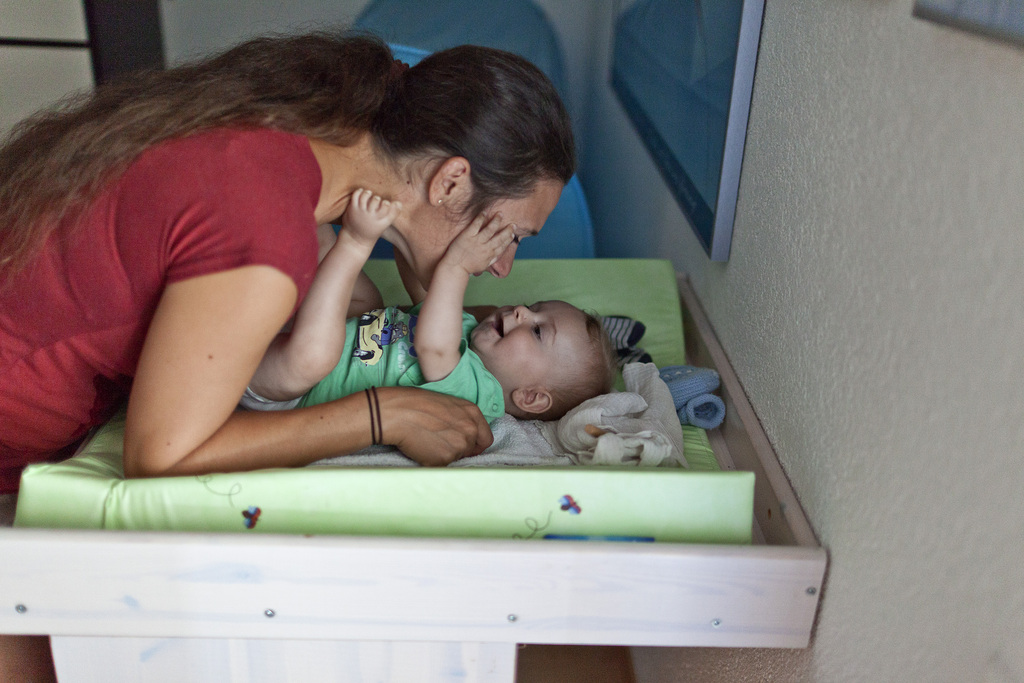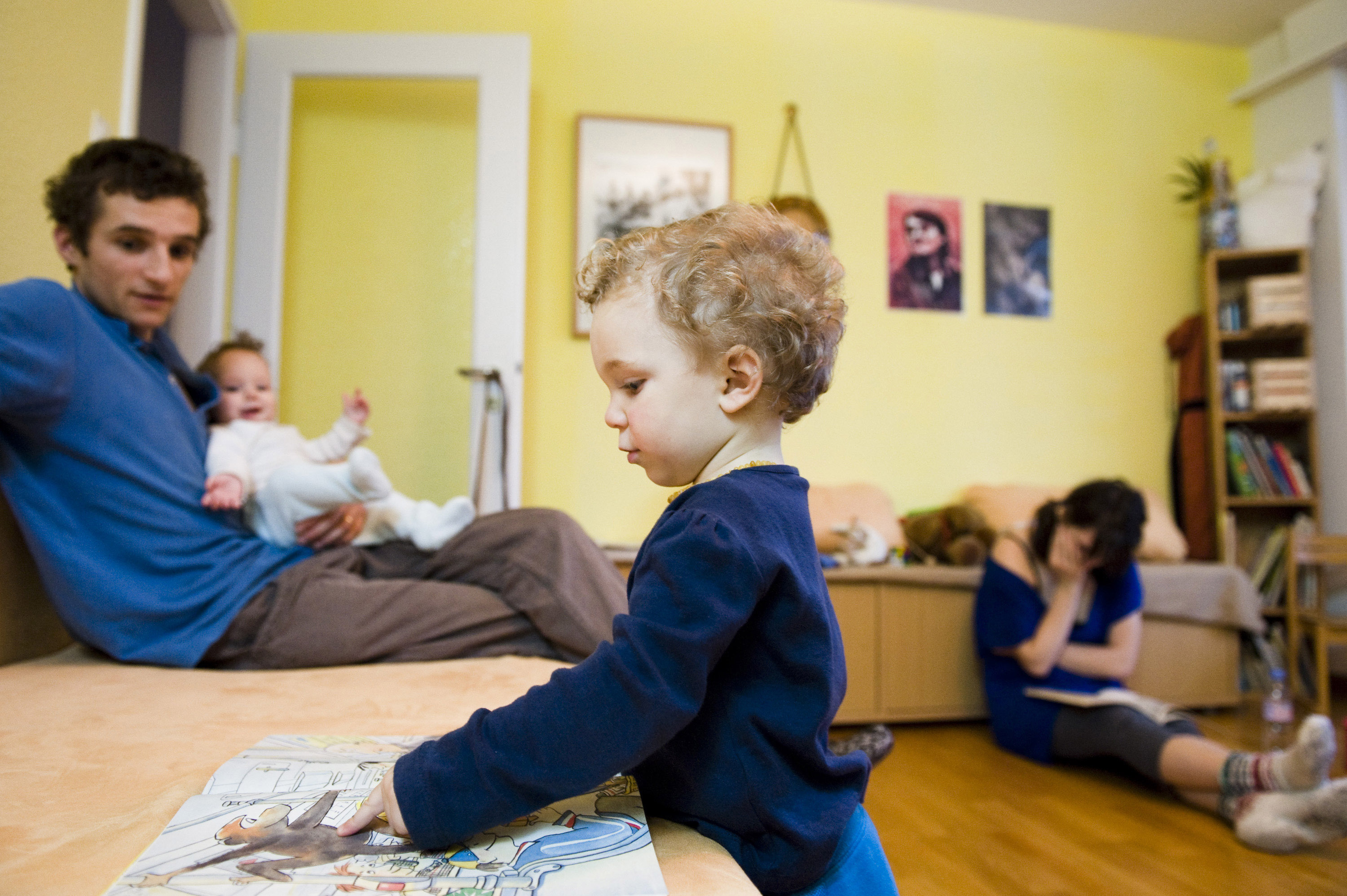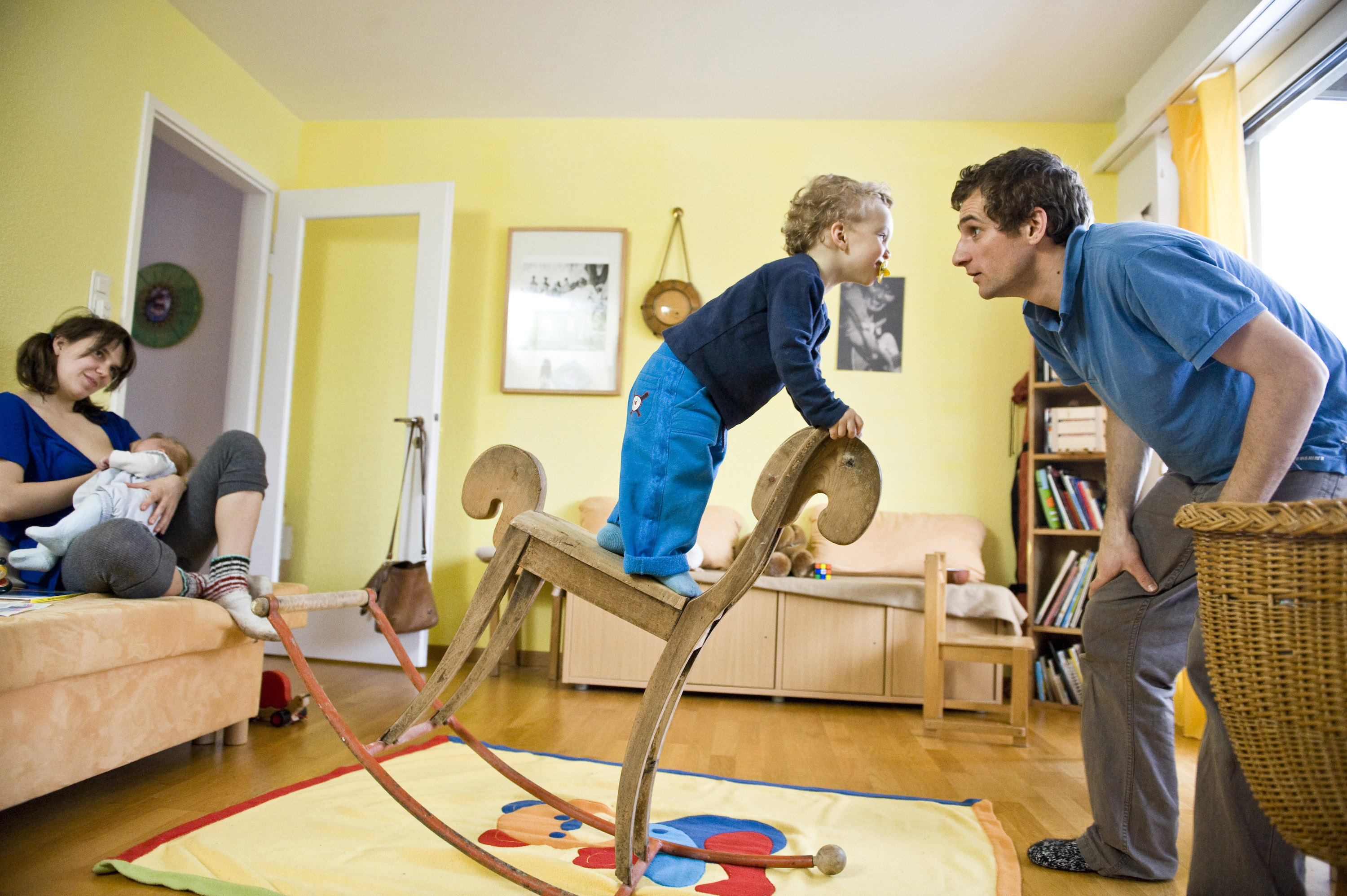Voters reject stay-at-home tax break

Swiss voters have shunned a proposal to grant a tax break to families that look after their children at home. Currently, only parents who send their children to daycare are allowed to make a deduction from their income taxes.
Nearly 59% of voters said “no” to the popular initiative launched by the rightwing Swiss People’s Party, which had called for tax breaks for parents with children at home to be “at least equivalent” to those for parents using daycare.
“It was the financial consequences of the tax break initiative that convinced voters. This was the weakest point of the initiative,” political scientist Claude Longchamp said. “Opponents argued that approval of the initiative would lead of a shortfall of revenue of CHF1.4 billion ($1.54 billion).”
Those against the initiative also argued that it would only serve to promote the traditional family model, keeping mothers at home. People’s Party parliamentarian Andrea Geissbühler said that this was not the point of her party’s proposal.
“Financial matters played a major part in the campaign. But our initiative was not a vote about a family model that should be given preferential treatment,” said Geissbühler.
Her party had said that if the initiative was accepted, mothers would be free to choose whether to keep on working or stay at home full-time. They argued that the current system discriminated against more traditional family models – like the mother in the homemaker role and the father in that of the breadwinner.
But critics said the People’s Party plan only appeared to be family-friendly.
An initiative to limit wages within a company at a 1:12 ratio:
Yes 34.7%
No 65.3%
A proposal to grant tax breaks for families who raise their children at home:
Yes 41.5%
No 58.5%
A plan to increase motorway fees:
Yes 39.5%
No 60.5%
Turnout: 53%
An estimated 5.2 million citizens were eligible to take part in the ballot, including registered Swiss expatriates.
It is the fourth and final nationwide ballot this year.
Votes and elections also take place at cantonal and local levels around the country.
Unfair taxation
“The initiative was misleading, pretending it would help families,” said parliamentarian Barbara Schmid-Federer of the Christian Democrats, arguing it would have discouraged women with children from getting paid employment.
“We also succeeded in averting an unfair tax system, and giving a small group of families preferential treatment,” added Schmid-Federer, a member of a committee formed to fight the initiative.
Finance Minister Eveline Widmer-Schlumpf said she was pleased with the vote results.
“The outcome of the vote ensures that there is no preferential treatment for one particular family model. It confirms the parliamentary decision in 2011 to grant fiscal deductions only to those who have additional expenses for childcare,” said Widmer-Schlumpf. She added: “Approving the initiative would have discouraged women from seeking a paid job outside the household.”
In a statement after the results were in, the People’s Party demanded that Widmer-Schlumpf and the cantonal finance directors publish a report on the overall expense of daycare.
Switzerland is average
Tax breaks or not, Switzerland could do better in terms of smoothing the path for women who wish to continue working after the birth of a child.
According to a recent report by the OECD (Organisation for Economic Co-operation and Development), the heavy incidence of part-time work among women reflects personal preferences as well as factors that limit their availability.
“The lack and high cost of childcare options for parents, as well as burdensome marginal income tax rates for second earners, create disincentives to work more,” states the report, which was published just a few days before the vote.
As OECD economist Richard Dutu told swissinfo.ch, Switzerland is merely average compared with other nations. “Public funding of childcare facilities is comparatively low,” he said.
Dutu also pointed out that “women are underrepresented in higher executive position and company boards.” However, he noted that at the political level, Swiss women have an above average standing.
He recommended that more be done to encourage women to increase their presence in the workforce, saying that this would boost Switzerland’s productivity.
In Switzerland most family policy issues are the domain of cantonal and to some extent local governments. The federal government has very limited room to manoeuvre here and only gets involved in integrating and promoting solutions.
As a result, different aspects of family policy are regulated in very different ways. The differences have been further accentuated by the big changes in society in recent decades and the strong divergences among the political parties on family policy issues.
The proposal on granting equal tax relief to parents who do not use daycare, which came to a national vote on November 24, 2013, was already in operation in two cantons – Valais and Zug.
An attempt to increase the federal government’s ability to manoeuvre in matters of family policy failed on March 3, 2012, due to the workings of the federal system itself. The majority of voters (54.3%) had approved a constitutional change that would have required the federal government and the cantons to promote the compatibility of work and family.
But the proposal did not win a majority of the cantons: 15 rejected it, while the other 11 (Basel City and Basel Country, Zurich, Solothurn and all the non-German-speaking cantons) accepted it.
(with input from Urs Geiser)

In compliance with the JTI standards
More: SWI swissinfo.ch certified by the Journalism Trust Initiative














You can find an overview of ongoing debates with our journalists here . Please join us!
If you want to start a conversation about a topic raised in this article or want to report factual errors, email us at english@swissinfo.ch.